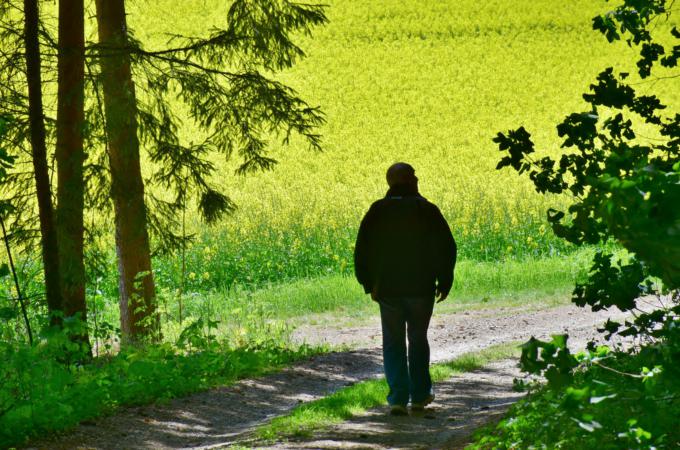The healing power of nature
''In every walk with nature, one receives far more than he seeks." -- John Muir
Do you remember the first time you saw the ocean or reached the peak of a tall mountain? Or a time you first encountered an enormous waterfall, or saw the Grand Canyon? Whatever the experiences may be, encounters with the natural world leave vivid impressions on us. Nature's mystery coexists with fascinating, particular details. The feeling of vastness when looking at the ocean mingles with observations of shells, rocks and small critters swimming in the shallows and crawling on the beach. Nature is a place where imagination can roam free while we make new discoveries about the outer world and our inner selves.
There is growing concern among a group of researchers, doctors and scientists that our lack of access to nature is harming us, and that more frequent exposure to nature can be highly therapeutic. So-called "ecotherapists" are even going so far as to write prescriptions for their patients to take walks in the park to help lower blood pressure, stress and depression. This approach to medicine may sound unusual, but it has been around for a long time.
If you became ill in the 18th or 19th century, your doctor might have prescribed a few weeks by the seaside or high up in a mountain resort. The "nature cure" was thought of as an effective remedy for conditions ranging from fevers and chronic illnesses to nervous breakdowns. Taking in the air by the sea was more likely to help a patient recuperate than the city air that had become increasingly polluted since the Industrial Revolution. A study in Germany in the 1800s found that tuberculosis patients recovered when they spent time in pine forests, particularly when there was moisture in the air, because of the healing properties of the compounds released by the trees. Today, science has confirmed that evergreen trees release compounds called phytoncides that are related to improved immune functioning.
A walk in the park is not meant to replace your blood pressure medication or therapy sessions, but there is a convincing case to be made that nature therapy is an effective supplemental therapy that should be taken seriously.
One study published in the Proceedings of the National Academy of Sciences found that people who took walks in a natural setting were found to have less activity in the part of the brain associated with pessimistic thinking, compared with a control group who walked in an urban environment. Another study linked access to nature with improved post-surgical recovery times and reduced stress. The effects of stress and the stress hormone cortisol are well-documented for the harm they have on our overall health. The presence of too much cortisol is a risk factor for heart disease, cognitive decline, depression, anxiety and weight gain. A National Institute of Health study examining the Japanese practice of Shinrin-yoku, or "forest bathing," found that simply looking at forest scenery for 20 minutes was enough to decrease cortisol levels in people by 13 percent!
Why We Respond to Nature
According to the Association of Nature and Forest Therapy, "Our species evolved in forests. We spent the first several million years of our existence in them. Then, a couple of millennia ago -- in evolutionary time scale, only yesterday -- our adventurous spirits inspired a global exploration. This morning, we invented cities. A bit before the noonday break we became industrialized civilizations. Suddenly, while our genes are still living in the forest, our bodies live in the busy, stressful conditions of modern civilization."
In other words, we are genetically wired to thrive in natural settings, and this is a basic principle of ecotherapy. One non-profit organization called The Nature Connection, based in Concord, Massachusetts, brings nature to people with limited access to the outdoors. Children, people with disabilities and older adults have the chance to encounter unusual animals, smell freshly cut boughs from the forest and learn about various outdoor samples brought by a program coordinator. Residents at The Courtyard at Youville Place, a memory support community in Lexington, benefit from programs like these on multiple levels. Senses and memories are awakened by the unusual experiences of seeing, touching and feeling a natural habitat recreated in front of them. Conversations, stories and memories emerge. Social interaction becomes livelier as residents, for just a few moments, experience the free feeling of exploring a natural habitat.
- Adam Johnson writes for Youville Assisted Living Residences, member of Covenant Health Systems, a Catholic, multi-institutional health and elder care organization serving New England.



















